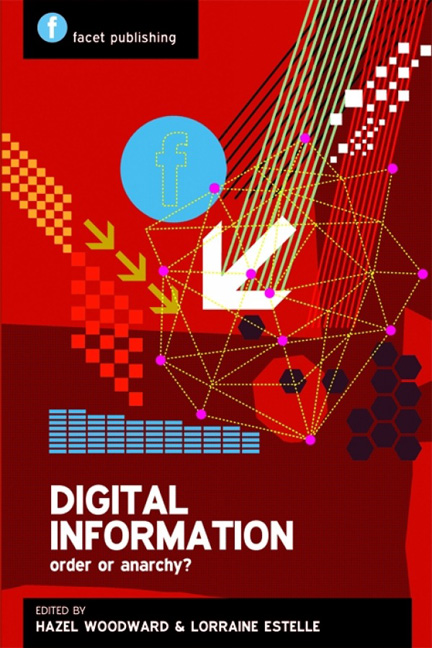Book contents
- Frontmatter
- Contents
- Acknowledgements
- Contributors
- Preface
- 1 Introduction: digital information, an overview of the landscape
- 2 Scholarly communications: the view from the library
- 3 Scholarly communications: the publisher's view
- 4 E-books and scholarly communication futures
- 5 Digitizing the past: next steps for public sector digitization
- 6 Resource discovery
- 7 Who owns the content in the digital environment?
- Index
7 - Who owns the content in the digital environment?
Published online by Cambridge University Press: 08 June 2018
- Frontmatter
- Contents
- Acknowledgements
- Contributors
- Preface
- 1 Introduction: digital information, an overview of the landscape
- 2 Scholarly communications: the view from the library
- 3 Scholarly communications: the publisher's view
- 4 E-books and scholarly communication futures
- 5 Digitizing the past: next steps for public sector digitization
- 6 Resource discovery
- 7 Who owns the content in the digital environment?
- Index
Summary
Introduction
Libraries have two roles essential to the IP balance: archiving the national memory and allowing the public and research community access to it.
Any book dealing with the future of digital information would be incomplete without considering the issues of intellectual property (IP). Although the internet casts a new light on these issues, the principal problems are not new. In the 19th century the American publishing industry was quick to recognize that in sharing a language with the UK, it was easy to share its literature too. English texts were open to piracy, and it was easier and more profitable to appropriate an English text than to pay an American author. This had a depressing effect on the US publishing industry, and for decades American authors expressed their frustration at being underpaid because of the availability of cheap pirated copies of UK publications. Equally, renowned British authors such as Charles Dickens were paid nothing for the many thousands of copies of their books sold in the USA. Indeed, Dickens, while on a reading tour of the USA, made many pleas for international copyright laws. His fans, enjoying access to cheap copies of his books, were not impressed; for example, they paid the equivalent of 6 cents per copy for a book such as A Christmas Carol, which cost $2.50 in the UK (Vaidhyanathan, 2001). It was not until the 1890s that international copyright agreements began to resolve the situation.
Arguably, since the late 19th century copyright law has evolved to protect the intellectual property of authors and creators, to cultivate a vibrant creative arts industry, and to allow for fair dealing on the part of the buying or reading public. Fair dealing is the ‘right’ to make a copy from an in-copyright work without permission from or payment to the rights holder, if that copy is for non-commercial research or educational purposes. The only requirement is to acknowledge the source of the copied work. Most individual copying by researchers at universities for academic purposes is done under the fair dealing provisions.
- Type
- Chapter
- Information
- Digital InformationOrder or anarchy?, pp. 165 - 196Publisher: FacetPrint publication year: 2009



